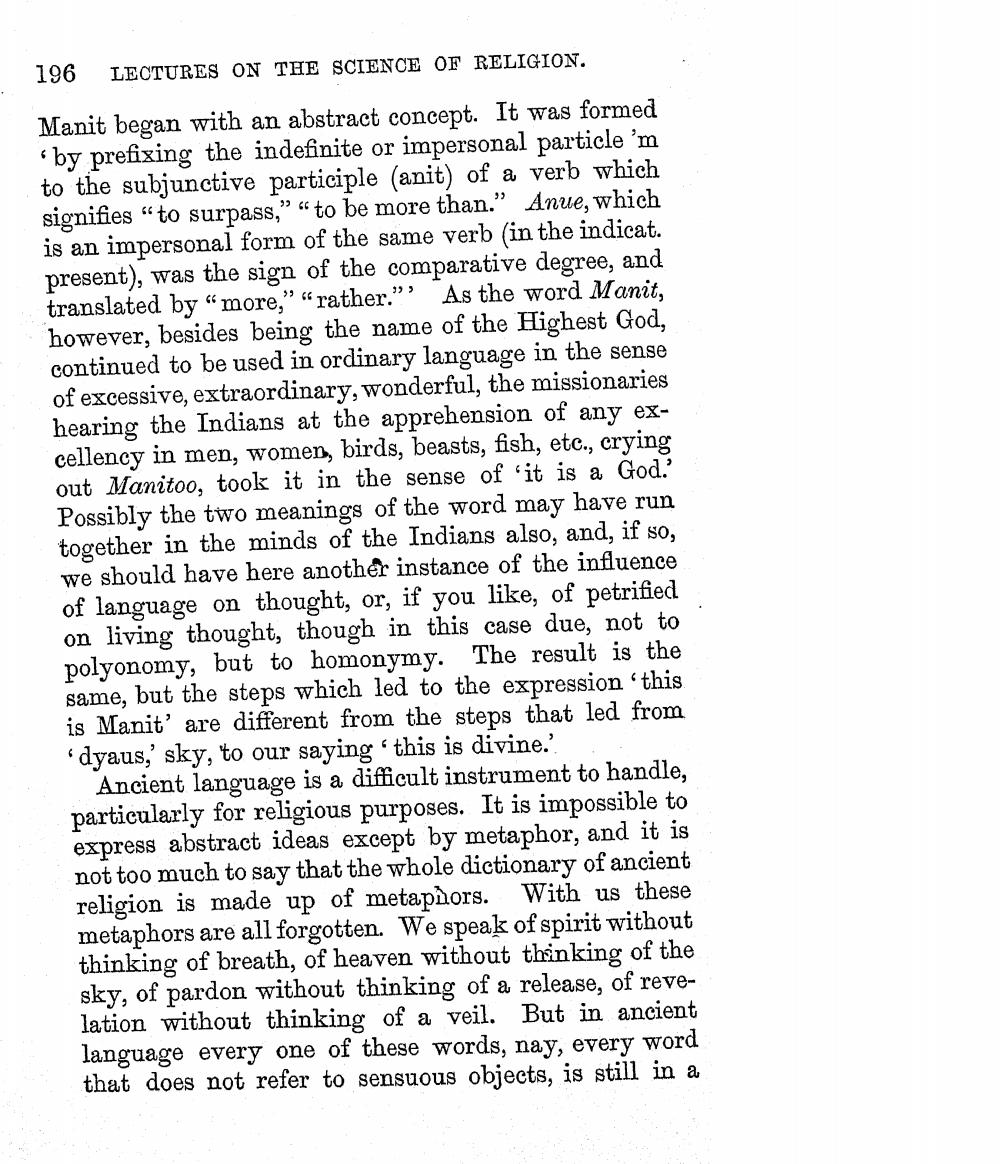________________
196
LECTURES ON THE SCIENCE OF RELIGION.
Manit began with an abstract concept. It was formed
by prefixing the indefinite or impersonal particle 'm to the subjunctive participle (anit) of a verb which signifies "to surpass," " to be more than.” Anue, which is an impersonal form of the same verb (in the indicat. present), was the sign of the comparative degree, and translated by “more." “ rather."! As the word Manit, however, besides being the name of the Highest God, continued to be used in ordinary language in the sense of excessive, extraordinary, wonderful, the missionaries hearing the Indians at the apprehension of any excellency in men, women, birds, beasts, fish, etc., crying out Manitoo, took it in the sense of 'it is a God.' Possibly the two meanings of the word may have run together in the minds of the Indians also, and, if so, we should have here another instance of the influence of language on thought, or, if you like, of petrified on living thought, though in this case due, not to polyonomy, but to homonymy. The result is the same, but the steps which led to the expression “this is Manit' are different from the steps that led from dyaus, sky, to our saying this is divine. .
Ancient language is a difficult instrument to handle, particularly for religious purposes. It is impossible to express abstract ideas except by metaphor, and it is not too much to say that the whole dictionary of ancient religion is made up of metaphors. With us these metaphors are all forgotten. We speak of spirit without thinking of breath, of heaven without thinking of the sky, of pardon without thinking of a release, of revelation without thinking of a veil. But in ancient language every one of these words, nay, every word that does not refer to sensuous objects, is still in a




